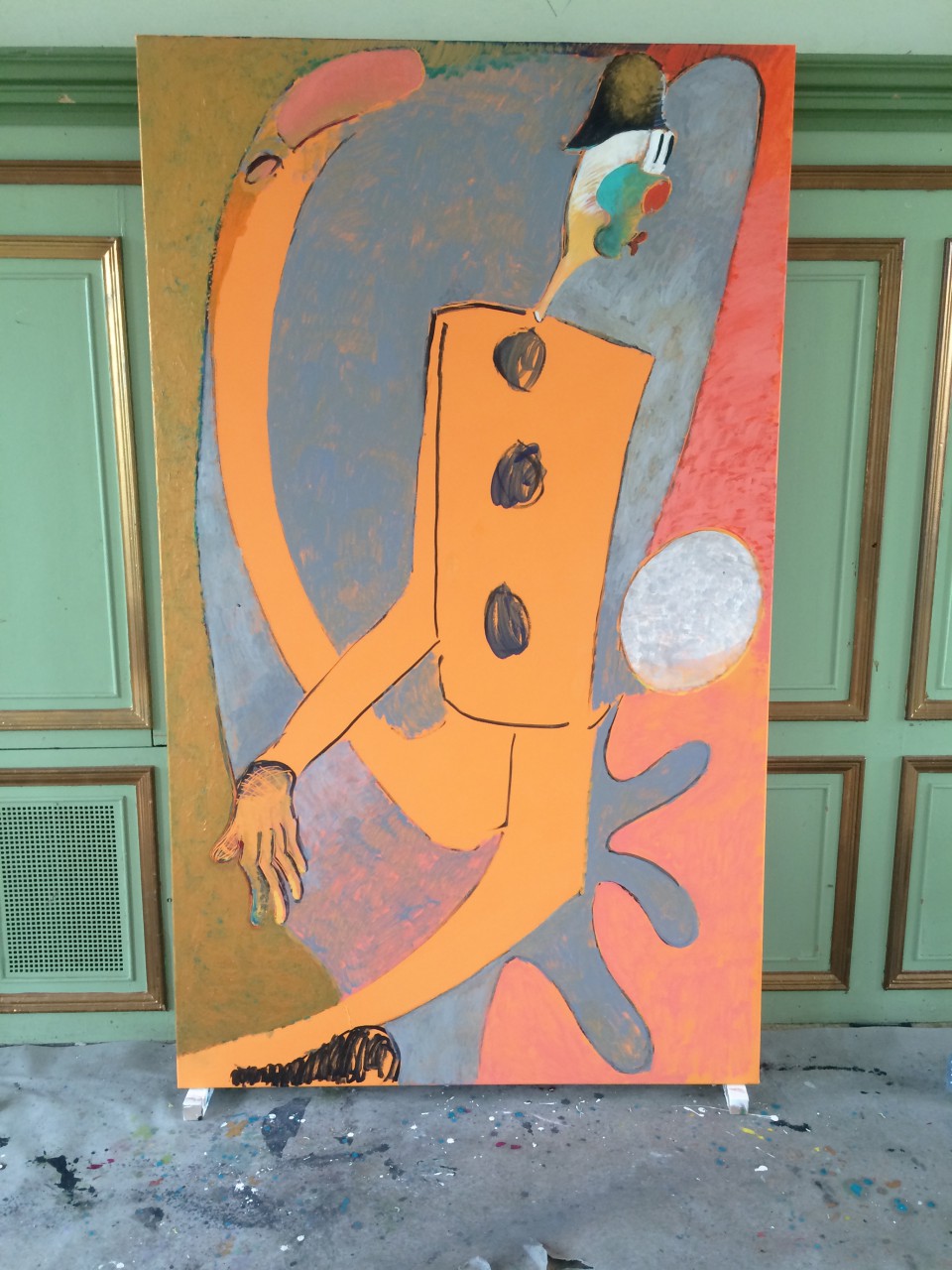WO SOLL DAS NOCH HINFÜHREN
Event Type:
SOLO SHOW
Location:
EXILE, KURFÜRSTENSTR. 19, 19785 BERLIN
Date:
June 02, 2016 - July 02, 2016
PUBLIC OPENING: JUNE 2ND, 7 - 9 PM

Wo soll das noch hinführen is an exhibition of new works by Berlin-based artist Ulrich Wulff which explore the psychological and material tensions inscribed in his painterly practice. Having recently reintroduced figuration to his work after a period of delicately rendered abstract painting, Wulff also reengages with a clown-like figure who originally appeared on his canvases during his earlier figurative period.
The works of Wo soll das noch hinführen position this figure against a stylized, magnified shadow of himself which evokes the rich intellectual and emotional dynamics of Wulff’s own engagement with the character. The grounds of the new works contrast sharply with the smooth, monochrome backdrops that characterize much of Wulff’s recent period of abstraction, suggesting a greater formal and psychic tension informs the paintings. Yet to refer to the works of Wo soll das noch hinführen as strictly “biographical” is to subordinate them to a narrative imperative that belies their openness, omnivorous points of reference, as well as the gestures toward universality with which Wulff seeks to infuse his compositions. Wulff’s clown is, at once, old friend, old nemesis, and alter ego, frozen in highly specific moments, yet also imbued with an intense kinetic potential as he fixes his gaze on the indeterminate distance just beyond the frame of the image.
The exhibition’s title thus becomes as much an imprecation as a rhetorical question. Perhaps any attempt at an answer would be insufficient to the presumption of such a bold and reductive question. Or, such answers would be too profound to be comprehensible to the questioner. Wulff’s clown, like those of Rouault and Picasso before him, may also be seeking a kind of resolution. But it is a resolution that will be eternally deferred, trapped, as he is, in the absurdity of the role assigned to him. Despite this fact, or, perhaps, because of it, Wulff’s clown, menaced by his own shadow, may understand an absurdity that is both deeper and more transcendently comic than mere appearances can convey.
William Kherbek